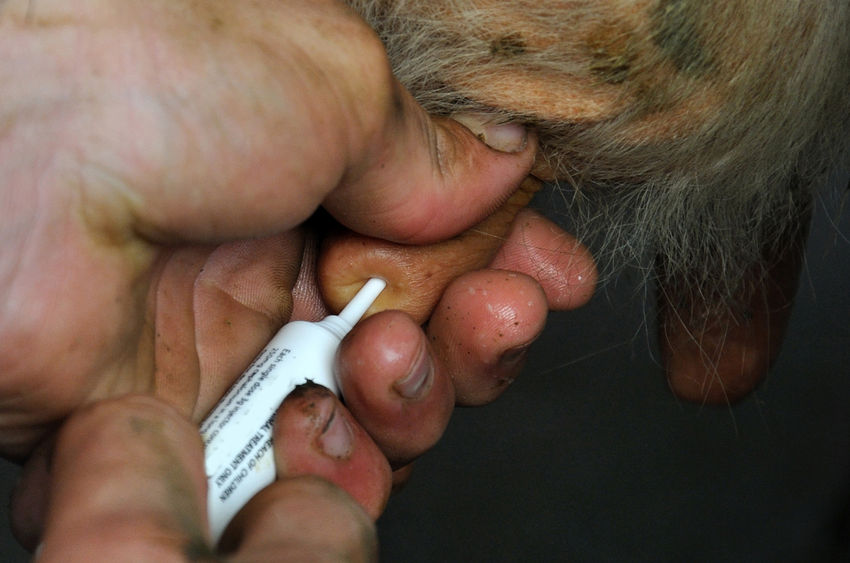
Today’s publication of 'Tackling Drug Resistant Infections Globally: Final Report and Recommendations', by Lord Jim O’Neill, has been applauded as a 'global landmark in the fight to keep antibiotics effective for both animals and people'.
Economist Jim O’Neill, charged two years ago by David Cameron with finding answers to one of the most pressing problems in the world today, says the global financial cost of no action would be the loss of 10 million lives a year by 2050 and £69tn ($100tn) a year.
NOAH, which represents the UK animal medicines sector, welcomed the report.
NOAH Chief Executive Dawn Howard says: "We endorse the proposal for incentives to develop innovative new treatments and better diagnostics: these must include the veterinary sector, so that animal medicines are available to treat the diseases that vets and farmers encounter.
"Improving the availability and uptake of vaccines, which is also proposed, can reduce the need for antibiotics.
"Veterinary surgeons need access to a range of medicines, including antibiotics, in order to treat the conditions and species under their care and support the high standards of animal welfare our society expects.
"The Report’s call for improved surveillance will build on work already being undertaken within the different livestock sectors, for example in the UK poultry and pig sectors.
"Targets to reduce antibiotic use must be based on an understanding of why and where antibiotics are currently used, and we welcome the Report’s suggestion that careful consideration must be given to how any target setting will be done.
"Once the facts have been established, resources can then be focussed on areas where change is most needed to reduce any unnecessary use.
"It is important to remember that in the UK – and indeed throughout the EU, veterinary antibiotics are only available on veterinary prescription and have been banned as growth promoters since 2006," she adds.
Restrictions on certain antibiotics for veterinary use
"NOAH believes that any such decisions must be based on independent regulatory officials’ expert opinions and must follow the agreed regulatory process – such as the recent EMA (European Medicines Agency) re-evaluation of the veterinary use of colistin," Dawn Howard says.
"Any changes need to be given a realistic time frame in order that animal welfare is not compromised – something the report itself acknowledges," she adds.
"We also fully support the Report’s call for a global public awareness campaign of this ‘One Health’ issue involving both human and animal health to improve understanding and compliance.
"This is a global report for a global problem, with practical recommendations and calls to action, both on the international stage and here in the UK."
Dawn Howard concludes: "The UK animal medicines sector looks forward to its role in implementing the Report’s recommendations by being part of the collaboration between UK government and industry, to develop practical proposals so that antibiotics remain effective to protect the health of people and animals into the future."
Battle to maintain the efficacy of antibiotics requires 'global focus'
RUMA, which works independently with organisations involved in all stages of the animal food chain from ‘farm to fork’, supports the report’s main findings, saying the battle to maintain the efficacy of antibiotics requires global focus combined with local action across both human and animal medicine.
John FitzGerald, RUMA’s secretary general, said: "We also understand the report’s ambition to develop long-term targets.
"The industry has long recognised the beneficial role targets can play, but is acutely aware that inappropriate targets can also be counterproductive and even lead to increased risk of resistance.
"So we are delighted to announce the setting up of this task force which will harness the expertise of specialists across different sectors and work proactively with the authorities to look at identifying effective, evidence-based goals that work for our UK livestock sectors and protect animal welfare."
He added that the UK focus was especially important as while there were important lessons to learn from other countries’ experiences in reducing antibiotic use, direct comparisons were never simple.
"It should be remembered that the Danish government invested heavily to allow its pig farmers to build new high-health premises.
"In reducing its antibiotic usage by nearly 60%, the Netherlands is now at approximately the same level of use as the UK. So we must look at how we develop the right goals for our sectors."
Mr FitzGerald said that RUMA was also pleased to see recognition of the importance of surveillance.
"Our UK poultry meat sector set up detailed surveillance of antibiotic use five years ago and through this has been able to replace, reduce and refine antibiotic use and pass on its learnings to other sectors.
"These include the pig sector, which has just launched an online medicine book and stewardship programme to improve on pig usage data already collected through the Red Tractor scheme, which has been in place since October 2014.
"And the cattle sector, which announced last year it would be working with vets to collect usage data."
Summary of report's findings
• A massive global public awareness campaign
• Improve hygiene and prevent the spread of infection
• Reduce unnecessary use of antimicrobials in agriculture and their dissemination into the environment
• Improve global surveillance of drug resistance and antimicrobial consumption in humans and animals
• Promote new, rapid diagnostics to cut unnecessary use
• Promote development and use of vaccines and alternatives
• Improve the numbers, pay and recognition of people working in infectious disease
• Establish a Global Innovation Fund for early-stage and non-commercial research
• Better incentives to promote investment for new drugs and improving existing ones
• Build a global coalition for real action – via the G20 and the UN
